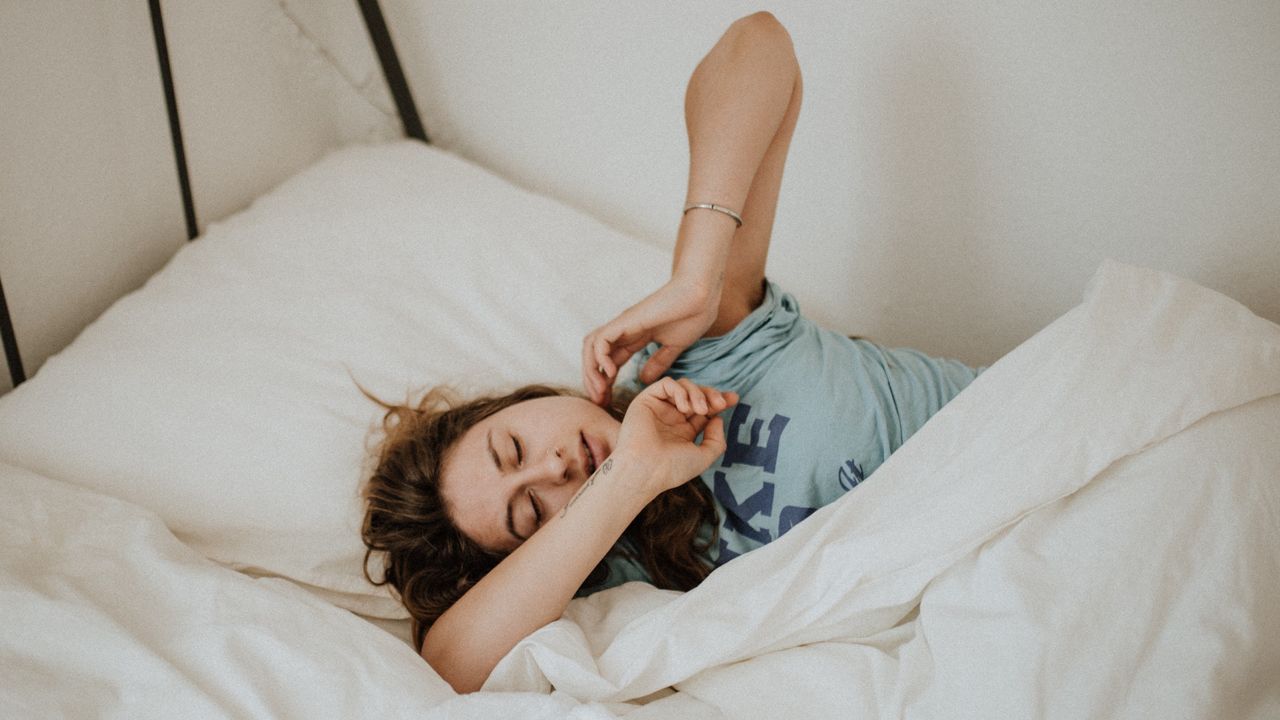TAMPA, Fla. — Not a lot of us are sleeping too well these days.
For many, sleeping through the night was tough enough before the pandemic was tough enough. According to the Society of Behavioral Sleep Medicine co-founder and Stanford University School of Medicine associate professor Donn Posner, around 35 percent of people experience short-term insomnia—which can manifest as trouble going to sleep, staying asleep, or waking too early—as a part of normal contemporary life.
RELATED: Sleeping with the TV on may make you gain weight
The coronavirus has seen that number rise.
What You Need To Know
- The pandemic has disrupted the sleep patterns of many people
- The main causes of this disruption are stress, anxiety and lack of routine
- A return to a routine may help improve sleep dramatically during the pandemic
- Here are five things anyone can do to help improve their sleep pattern
“That does happen,” says Dr. Laura Arline, MD, Chief Quality Officer for BayCare Health Systems. “Part of that can be related to worry and stress, and part of it is just being out of your normal routine.”
In addition to the worry that comes with living in a world that’s radically different than the one we’re used to, those breaks in our routine can be disastrous for healthy sleep patterns. Something as simple as not opening the blinds and living in lower-light conditions for longer periods of time can inhibit the production of melatonin, the hormone that regulates our sleep-wake cycle—what’s often referred to as our circadian rhythm.
RELATED: Guidelines for Students on Getting Enough Sleep
“The circadian rhythm is kind of thrown off during the pandemic,” Dr. Arline says. “It can be something as simple as the lighting in the house… the rhythm depends on the light, that’s what turns your brain on and off.”
Long-term sleep deprivation can lead to various physical and emotional problems—sleep boosts the immune system and refreshes the brain, and lack of it can lead to anything from worsening depression to headaches and chronic fatigue disorders.
Some of us have taken to trying the use of over-the-counter or “natural” sleep aids, such as additional melatonin in tablet form or herbs like valerian root or St. John’s wort. Even though these products are touted as organic and harmless, Dr. Arline cautions people with any sort of health issues against using them without first consulting a physician.
RELATED: Florida is Not Getting Enough Sleep. The Solution May Include Teddy Bears.
“The least likely to cause problems is also, unfortunately, the least likely to help, which is taking additional melatonin,” she says. “St. John’s wort and valerian root can interfere with medications.”
There are, however, five things that all of us can do to help us get a better night’s sleep, and they all have something to do, to one degree or another, with resetting our old routine or finding a new one:
Set a rhythm.
It doesn’t have to be the same schedule you had before the pandemic, but it’s important to try to stick to the same bedtime and waking time as often as possible.
No gym? No problem. You don’t need the full-on CrossFit box to work your body. Exercise—whether it’s running, calisthenics, or something as simple as yard work or thoroughly cleaning the house, increases your body’s desire for rest.
Viewing anything that’s upsetting or causes anxiety can keep the conscious mind from attaining a restful state, and the real-world stuff is always more likely to make you anxious. But, that said:
Don’t use any screens right before bed.
Most modern TVs, tablets, and phone screens emit blue light, which can inhibit the brain’s production of melatonin. “What the blue light does is interfere with melatonin, which is what makes you feel tired,” says Dr. Arline. Using an app that blocks blue light or wearing glasses specially made to do the same thing can mitigate the effect somewhat, but it’s still probably better to not make screen-watching part of your “wind-down time.”
“Part of that wind-down time should include doing something like reading a real book, taking a bath, having a peaceful conversation with your family, yoga, mediation—those kind of things can be part of a bedtime routine,” she says.
Don’t try to “catch up” on missed sleep.
That’s not really a thing. In fact, sleeping in for 10 hours on a free weekend or taking longer naps during the day may actually be as detrimental to your frame of mind as pulling an all-nighter.
When asked if it’s possible to get back to something resembling healthy sleep without any lasting physical or emotional damage, Dr. Arline is determinedly optimistic.
“I definitely think so,” she says. “The pandemic has certainly thrown a monkey wrench into our routines, but if folks can get back into some sort of routine, whether it’s a slightly new one or the one they had before, it can certainly help. Kids have a bedtime routine, and adults need one, too. If you have a typical wake-up time and a typical wind-down time, it will do wonders for your sleep.”



